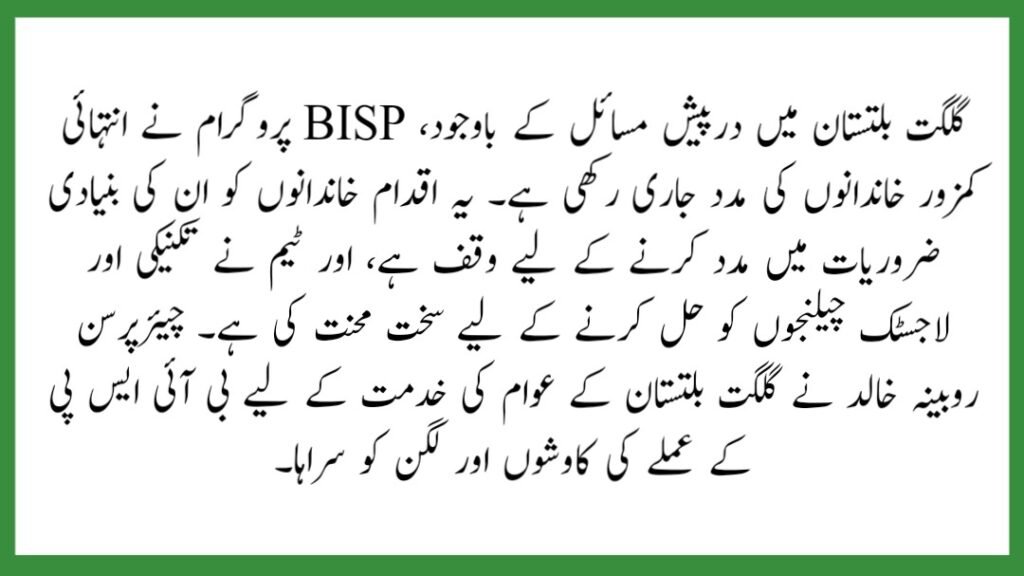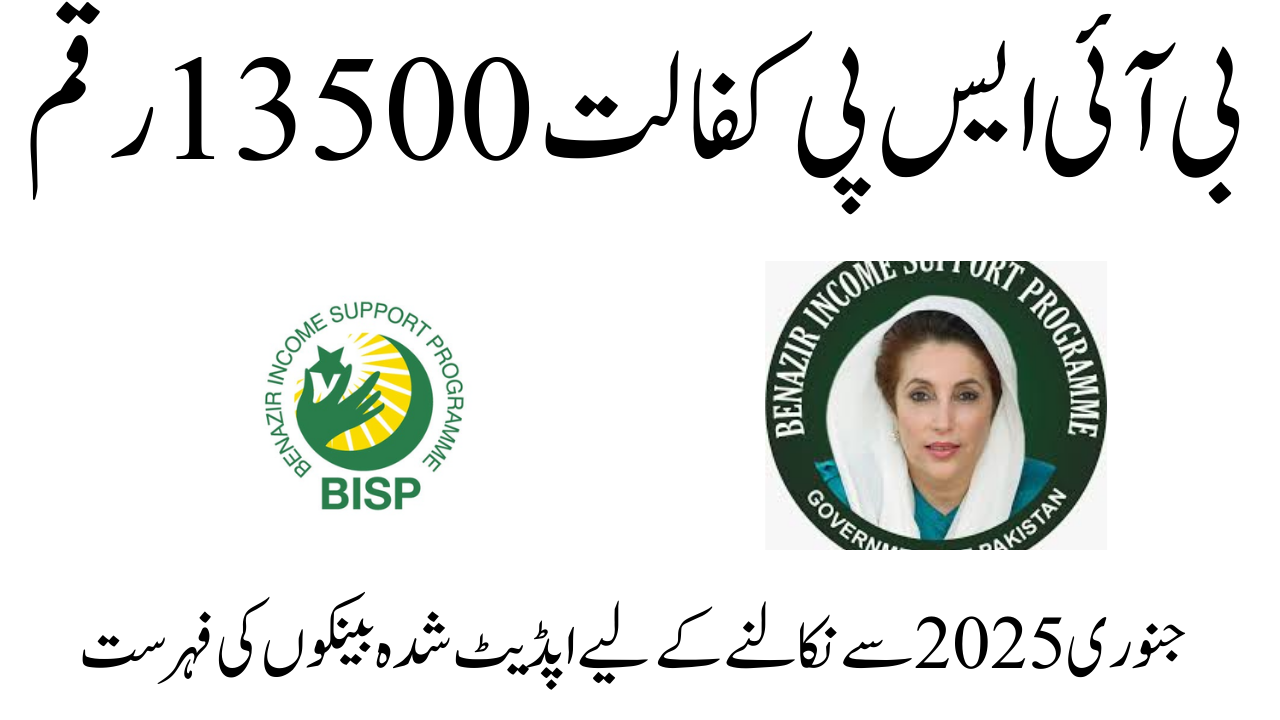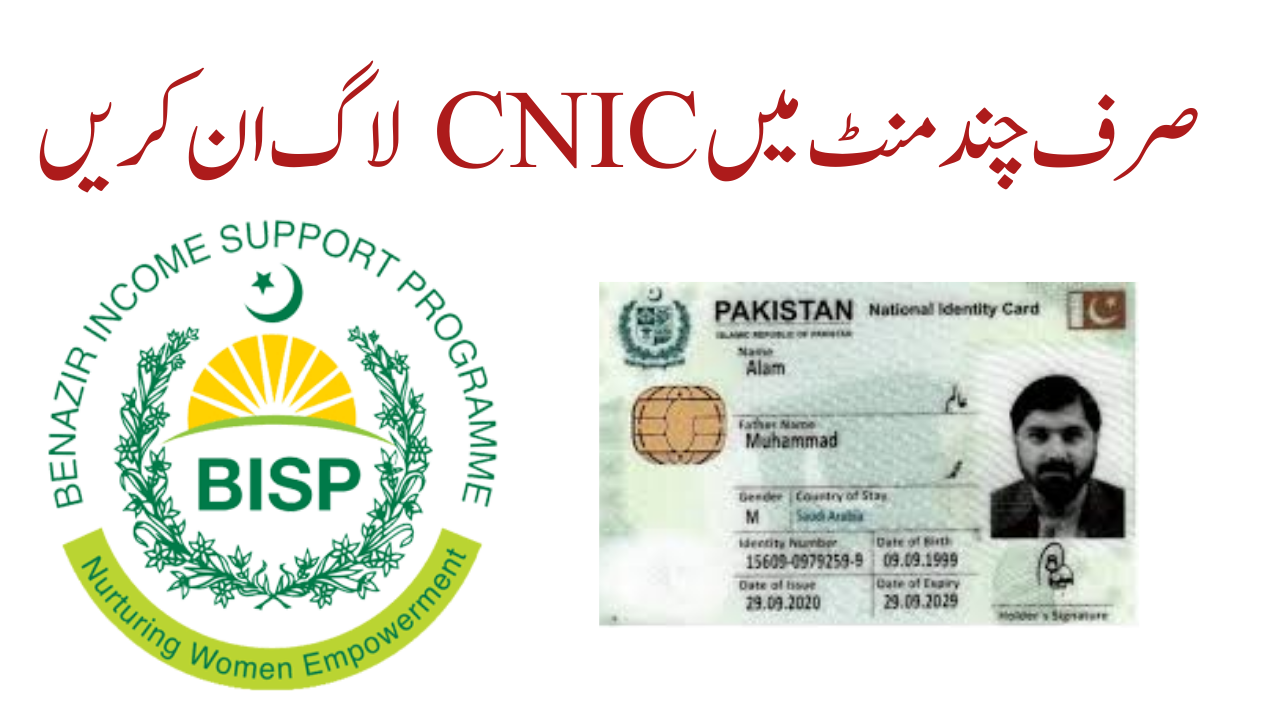The Benazir Income Support Programme (BISP) is now providing monthly Kafalat payments to nearly 92,000 women in Gilgit Baltistan. Recently, BISP Chairperson Rubina Khalid and her team visited the region to examine the present situation and verify that beneficiaries are receiving the necessary assistance. The program assists families with meeting their basic necessities, and the government continues to enhance the system to make it more efficient.
Also Read: Punjab Chief Minister’s Solar Tubewell Program for Agriculture: Check Eligibility
| Key Points | Details |
| 92,000 women receiving support | Through the Kafalat monthly payments |
| BISP leadership visit to Gilgit Baltistan | Rubina Khalid assessed beneficiary needs |
| Focus on improving the program | Technical and support challenges addressed |
| Goal of improving services | To meet basic needs of families |
BISP Chairperson’s Meeting with Gilgit Baltistan Chief Minister
Encountered During her visit to Gilgit Baltistan, Chairperson Rubina Khalid encountered Chief Minister Haji Gulbar Khan.They discussed critical concerns affecting BISP Kafalat Program beneficiaries. One of the primary considerations was ensuring that beneficiaries could readily receive their monthly payments via the internet system. The Chief Minister pledged to work on modernizing the system so that everyone can get money without difficulties.

Internet Problems in Tribal Areas
The absence of internet access in Gilgit Baltistan’s tribal areas was a key topic of discussion throughout the summit. This issue makes it difficult for residents to obtain their BISP payments. Rubina Khalid encouraged the Chief Minister to offer internet access in these locations so that beneficiaries are not need to travel long distances to collect their payouts. The idea is to make the procedure quicker and more transparent by using the internet platform for payments.
Also Read: Re-certification of Registered Families Through the NSER Dynamic Survey in 2024
Technical and Financial Challenges
Many people in Gilgit Baltistan are struggling financially as a result of a lack of job options. During the discussion, the Chief Minister demanded an increase in the region’s Poverty Management Tool (PMT) score. This would enable more people to qualify for the BISP Kafalat Program and get critical financial assistance. The lack of a strong private sector in the region makes it difficult for families to satisfy their basic necessities, and raising the PMT score would allow more individuals to receive the assistance they require. Payments are affected by a lack of Internet connectivity. Tribal areas confront additional obstacles. In Gilgit Baltistan, financial difficulties are not uncommon.
Shortage of BISP Staff in the Region
Another issue raised was the lack of BISP personnel in Gilgit Baltistan. As a result, many families experience delays in registering for the program and getting money. The Chief Minister has directed the BISP team to address this issue by hiring additional people to handle the burden. This ensures that all eligible families may register and get their payments on time.
BISP’s Efforts Despite Challenges
Despite the problems encountered in Gilgit Baltistan, the BISP program has continued to support the most vulnerable families. The initiative is dedicated to assisting families with their basic necessities, and the team has worked hard to solve technical and logistical challenges. Chairperson Rubina Khalid complimented the BISP staff’s efforts and dedication to serving the people of Gilgit Baltistan.

Conclusion
The Benazir Income Support Programme (BISP) is making a significant difference in the lives of nearly 92,000 women in Gilgit Baltistan through monthly Kafalat payments. Despite obstacles such as limited internet connectivity, staff shortages, and financial constraints, efforts are underway to improve the program and reach more individuals in need. The government is working closely with local authorities to ensure that all technical concerns are fixed and recipients continue to receive the support they need.







